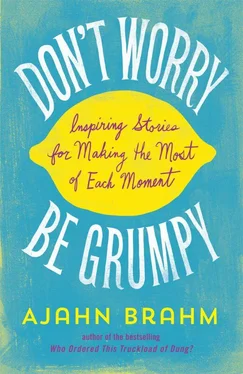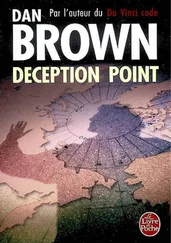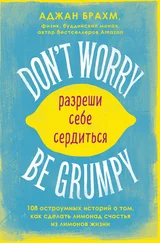But what about the Buddhist idea of God?
At a chaplaincy seminar at our local university, I was co-presenting with a Benedictine abbot who happened to be an old friend. At question time, a well-known Christian in the audience asked me to explain the Buddhist concept of God.
It would have been easy for me to quote ancient Buddhist texts or sayings handed down from my teachers, but that would have taken the question nowhere. So I decided to answer in a way that would go deeper into wisdom and create greater harmony between two of the world’s great spiritual traditions.
“My friend Abbot Placid,” I began, “who is sitting next to me, has often told me that one of his core beliefs is that everyone is searching for God. I respect my friend so much that I accept the truth of this belief. So what do I and other Buddhists search for?
“We search for peace, compassion, truth, respect, forgiveness, and unconditional love. If that is what Buddhists search for — atheists too, I would add — and if everyone is searching for God, then that is what God must be. It is peace, compassion, truth, respect, forgiveness, and unconditional love. That is the Buddhist understanding of God.”
Those of other faiths were happy with my answer.
When asked by a popular Buddhist magazine to write an article on enlightenment, I sent the following spoof on the TV show Who Wants to Be a Millionaire? To my surprise, the article was published.
Who Wants to Be Enlightened?
“Welcome Ladies and Gentlemen. Today on ABC (American Buddhist Channel) we present the final of Who Wants to Be Enlightened?
“This show is proudly sponsored by Dhyana Corporation Meditation Cushions, the only company that promises ‘If you’re not enlightened using our cushions in this life, we’ll give you your money back in your next life!’
“Now, with a great pleasure that I am not attached to, I introduce our four finalists: Venerable Anna Gami, Geshe Bo De’Sattva, Roshi Sid Arthur, and renowned lay meditation teacher, psychotherapist, and gay and any other rights activist, Amy Tarbha. Please welcome them with a Sadhu, Om , or Mu !
“For new viewers to the program, here are the rules again. There will be three elimination rounds, where each of Their Holinesses will be tested on their achievement of enlightenment. One finalist will be eliminated and sent back to the source after each round.
“The first round is a question. How do you describe enlightenment?”
Anna: “Enlightenment means having no self. In fact, as the only Theravada Buddhist here, following the original teachings of the Buddha, I am the purest and most enlightened. I say that if you have realized that you have no self, then be proud of your attainment and tell everyone.”
Bo: “Enlightenment to me means being so compassionate to my disciples that I intentionally get very angry at them so that they don’t feel so miserably inferior in my presence.”
Sid: “Enlightenment means having no attachment. I am so detached that I am not even attached to detachment, hence my cool new Rolex. Check it out! Awesome, isn’t it?”
Amy: “Enlightenment to me is having great sex without the delusion of a self that has to feel guilty about anything.”
“Thank you, Your Emptinesses, for your unfathomable wisdom. And the first off the wheel and off the show is… Anna! And don’t ever come back, Anna Gami.
“The test for the second round is who can sit in meditation for the longest time. So, Your Ineffables, after the gong, meditate!”… GONGGG!
After only two minutes, Amy opens her eyes and checks her Twitter account. Sid lasts a whole hour. But Bo sits still for so long that the medics on the show decide that he is dead and cremate him. Bo has gone to suchness. The audience give Bo a big round of “Om! Sweet Om!” Now, only Sid and Amy remain.
“The final round, which will decide the winner of Who Wants to Be Enlightened? , has arrived. Isn’t this exciting! Sid and Amy, I now want you to demonstrate on live TV a psychic power.”
Sid closes his eyes, focuses deep within, and with a rush of ecstasy, he floats up into the air like a feather on the breeze. Higher and higher Sid levitates above the stage until the awestruck audience bursts into thunderous applause. So loud is their cheering that it interrupts Sid’s concentration, destroying his psychic power and causing him to come crashing back down on the stage. Breaking his neck, he dies instantly. Many in the audience gain satori , Sid returns to the ground of all being, and a new koan is born.
With only one contestant remaining, Ms. Amy Tarbha, famous lay meditation teacher, psychotherapist, and every-right campaigner, is declared the winner of Who Wants to Be Enlightened? and presented with a special, limited-edition, solid-gold meditation cushion — hell to sit on, but impressive to look at — with GPS to navigate through and beyond all hindrances. She was the only one left found wanting.
I wrote this piece originally for Inquiring Mind (Fall 2010) as a bit of fun to destroy the craving to attain, expose the fraudulence of those who publicly claim to be enlightened, and to vacuum up the centuries-old cultural dust that has covered up enlightenment to the point of total obfuscation.
An erudite professor of philosophy read in his local newspaper that a new five-star restaurant had opened up in town. He quickly called to make a reservation. The restaurant, however, was already so popular that he had to wait for two months for the next available booking.
Eight weeks later, the professor appeared at the five-star establishment wearing a fine suit and immaculately groomed. The maitre d’ asked to see his personal identification to confirm that he did indeed have a reservation that night. Seeing that he did, the maitre d’ led him to his table.
The professor was in awe at the interior decoration and fittings of the exclusive restaurant. The soft light from the unobtrusive standing lamp bathed his table in a warm, understated glow, reminding him of the calming light of twilight, secretive but just enough to see. A waiter in a white bow tie and elegant jacket presented him with the menu.
Even the menu matched the plush, rich surroundings of the five-star restaurant. It was made of thick, golden parchment with a border of deep crimson. The 108 items on the menu were written in exquisite calligraphy, the sort that is seen in museums of art more than restaurants.
The professor gazed in admiration at the menu, reading it many times. Then he proceeded to eat the menu. After which, he paid his bill, thanked the maitre d’, and left.
The unfortunate professor, learned as he was, did not know the difference between the menu and the food. The words were all he knew and cared for.
You, my reader, have now completed the 108 items on the menu that is Don’t Worry Be Grumpy . Please don’t be like the philosophy professor who “eats” only the words.


Ajahn Brahmavamso Mahathera (lovingly known to many as Ajahn Brahm) was born Peter Betts in London, United Kingdom, on August 7, 1951. He came from a working-class background and won a scholarship to study theoretical physics at Cambridge University in the late 1960s. After graduating he taught high school for one year before traveling to Thailand to become a monk and train with the Venerable Ajahn Chah Bodhinyana Mahathera. While still in his years as a junior monk, he was asked to undertake the compilation of an English-language guide to the Buddhist monastic code — the Vinaya — that later became the basis for monastic discipline in many Theravada monasteries in Western countries.
Читать дальше












